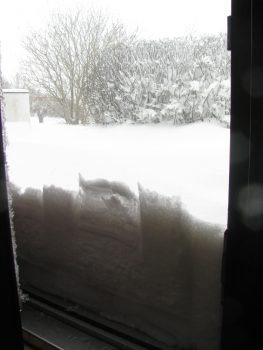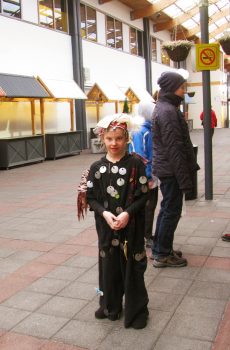Reykjavík, one week in pictures: storm, snowstorm, ash fall. Posted by hulda on Mar 10, 2013
Last week really gave us a proper taste of Icelandic weather at its worst! Starting with a storm on Monday and growing into a snowstorm that began on Wednesday morning, ending up with an ash fall. The snowing was no ordinary kind either. We got so much snow that the schools were closed and guess…
Subjunctive mood and how it’s used, part 1. Posted by hulda on Feb 28, 2013
Viðtengingarháttur, the subjunctive mood, is an often used verb form in Icelandic as it not only shows the typical subjunctive mood unreality – wishes, hopes, suspicions, plans, possibilities etc. – but is necessary for the most common polite phrases. Viðtengingarháttur -forms exist in both present and past tense. The word itself is a compound word…
Loki’s children. Posted by hulda on Feb 20, 2013
“You can choose any text you like, except for poems or song lyrics.” The first translation course that the University of Iceland offers is typically on the first semester of the third year. It takes two years of studying Icelandic before we have gathered enough vocabulary and knowledge on Iceland and its culture to be…
Dawn of the bolla. Posted by hulda on Feb 13, 2013
I will probably live, I think, fighting against the rising panic in the back of my throat. I sharpen my ears: the lady is trying to ask me something and it’s vital that I understand it now or I may not get another chance. I shout my answer to her, hoping to be heard above…
A 5 step guide to rhythm. Posted by hulda on Feb 6, 2013
Like I promised last month, here’s the entry on the length of vowels and what determines whether a vowel is long or short. For example, why is the name Vala pronounced with a long first “a” but the name Valla with a short one? Why do the words gata (= street) and hús (= house)…
A naked tourist on the Prime Minister’s lawn. Posted by hulda on Jan 31, 2013
One of our current classes is now focusing on what makes written text difficult to read. The most obvious causes are very topic specific vocabulary (that can make the text hard even for the locals), proverbs and idioms that are impossible to understand unless you already know what they mean etc. Then there’s the word…
Personal pronouns, or how polite can be rude. Posted by hulda on Jan 23, 2013
Personal pronouns – something that should be among the easiest things to learn in almost any new language – take a surprising amount of time to learn when it comes to Icelandic. This is partially because of the many declensions they have, but also because there are two different sets of them in use depending…








